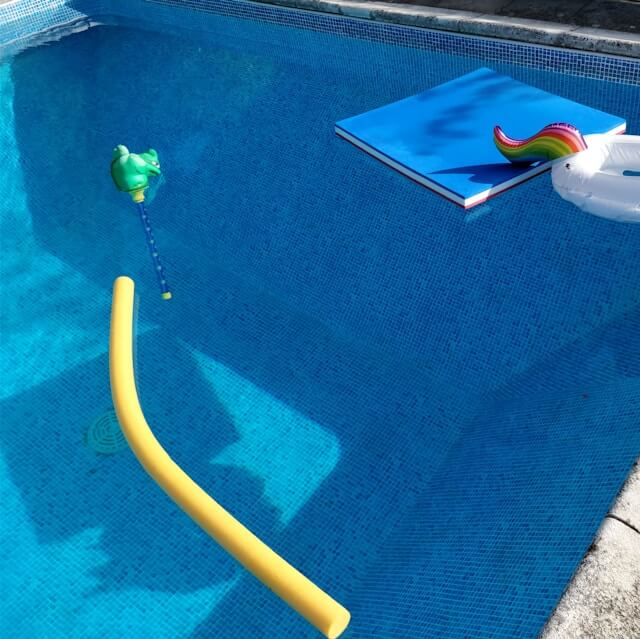How to Drain Your Pool Without a Shop Vac in Michigan: A Homeowner’s Guide
Need Expert Help Draining Your Pool in Michigan?
Call us now for professional, reliable pool draining and maintenance services.
Call Now: 313-217-4973Draining a pool can seem daunting, especially without a shop vac. Whether you’re prepping for winter, repairing your pool, or just doing maintenance, knowing the right way to drain your pool safely and effectively is key. If you’re a Michigan homeowner wondering how to get it done without specialized equipment like a shop vac, this guide is for you.
We’ll walk through practical methods, safety tips, local regulations, and answer the most common questions so you can tackle this task with confidence.
Why Drain Your Pool?
First off, let’s understand why you might need to drain your pool.
- Repairs and Maintenance: Fixing cracks, repainting, or replacing liners usually require an empty pool.
- Winter Prep: Draining part of your pool might be necessary in colder climates like Michigan to prevent freeze damage.
- Cleaning: Sometimes heavy cleaning or algae treatment calls for lowering the water level or full draining.
Whatever the reason, draining a pool isn’t as simple as just letting the water out. You need to do it properly to avoid damage to your pool and property, and to stay within legal guidelines.

Common Methods to Drain a Pool Without a Shop Vac
1. Submersible Pump Rental or Purchase
If you don’t have a shop vac, a submersible pump is your best friend. You can rent one at most hardware or tool rental stores in Michigan.
How it Works:
The pump sits at the bottom of your pool, sucking water through an attached hose and discharging it away from your home—ideally to a garden area or sewer system approved for pool water.
Why It’s Effective:
- Fast draining compared to manual methods
- Less labor-intensive
- Designed specifically for this purpose
Pro Tip: Check the power source and hose length before renting. Also, make sure to comply with local rules about where you can drain pool water.
2. Siphoning with a Garden Hose
No pump? No problem. The classic siphon method uses just a garden hose and gravity.
How to Siphon:
- Submerge the entire hose underwater to fill it completely.
- Cover one end tightly with your thumb.
- Quickly move the uncovered end downhill to your drainage spot.
- Release your thumb, and water should start flowing naturally.
This method relies on gravity, so the pool must be higher than your drainage area. It’s slower than a pump but completely free.
Things to Keep in Mind:
- It may take time to get the siphon started.
- Keep the hose filled with water during the process.
- Avoid kinks in the hose that could stop flow.
3. Manual Bucketing (Small Pools)
If your pool is small or you only need to remove a little water, scooping out water with buckets can work.
Why It’s Usually Not Ideal:
- Labor-intensive and slow
- Not practical for large pools
But in emergencies or small kiddie pools, it’s a no-tech solution that anyone can do.
Michigan Pool Draining Regulations You Need to Know
Draining your pool improperly in Michigan can cause environmental issues or violate local laws.
- Do NOT drain pool water into storm drains: This water often goes untreated to rivers and lakes, carrying chemicals that harm aquatic life.
- Drain to sanitary sewer or approved area: Some municipalities allow draining to the sanitary sewer, but only with permission.
- Neutralize chemicals before draining: Pool water with chlorine or other chemicals should be neutralized (usually by letting it sit or using a chemical neutralizer) before draining.
- Contact your city or township: Check with your local water authority in Sterling Heights or your Michigan municipality for specific guidelines and permits.
Tips for Safe and Effective Pool Draining
- Turn off all pool equipment: Pumps, filters, and heaters should be turned off to prevent damage.
- Monitor drainage area: Make sure discharged water isn’t causing flooding or erosion.
- Protect your pool structure: Draining too fast can cause the pool shell to lift or crack, especially if groundwater pressure is high. Drain slowly if possible.
- Wear protective gear: Gloves and boots can protect you from chemicals and slippery surfaces.
FAQs About Draining a Pool Without a Shop Vac in Michigan
Q: Can I use a regular household vacuum to drain my pool?
A: No. Regular vacuums aren’t designed for large volumes of water and can get damaged or cause electrical hazards.
Q: How long does it take to drain a pool using a garden hose siphon?
A: It depends on your pool size and the hose diameter. It can take several hours to days for large pools, so be patient.
Q: Is it okay to drain pool water into my yard?
A: Only if your yard is suitable for drainage and doesn’t cause flooding or harm plants. Also, chemicals in the water should be neutralized first.
Q: What if my pool is above ground? Any different steps?
A: The same principles apply, but be extra cautious not to damage the pool walls by uneven draining. Use a submersible pump for the safest results.
Q: How do I neutralize pool chemicals before draining?
A: Typically, letting the water sit with the pump running to circulate fresh air reduces chlorine. Alternatively, use chemical neutralizers sold at pool supply stores.
When to Call a Professional
If you’re unsure about how to safely drain your pool, or if your pool is large and complicated, it’s best to call a pro.
Professionals have the right equipment and knowledge to:
- Avoid damaging your pool structure
- Properly dispose of pool water
- Save you time and stress
Want Professional Pool Draining Services in Michigan?
Call us today for reliable, affordable pool draining and maintenance assistance.
Call Now: 313-217-4973Final Thoughts
Draining a pool without a shop vac in Michigan is absolutely doable. Whether you rent a submersible pump, use the siphon method, or even bucket water out, make sure to follow local regulations and prioritize safety.
If you want to avoid the hassle or if your pool requires special care, don’t hesitate to reach out to a trusted local pool professional. Proper draining protects your investment and keeps your home safe through Michigan’s seasonal changes.




